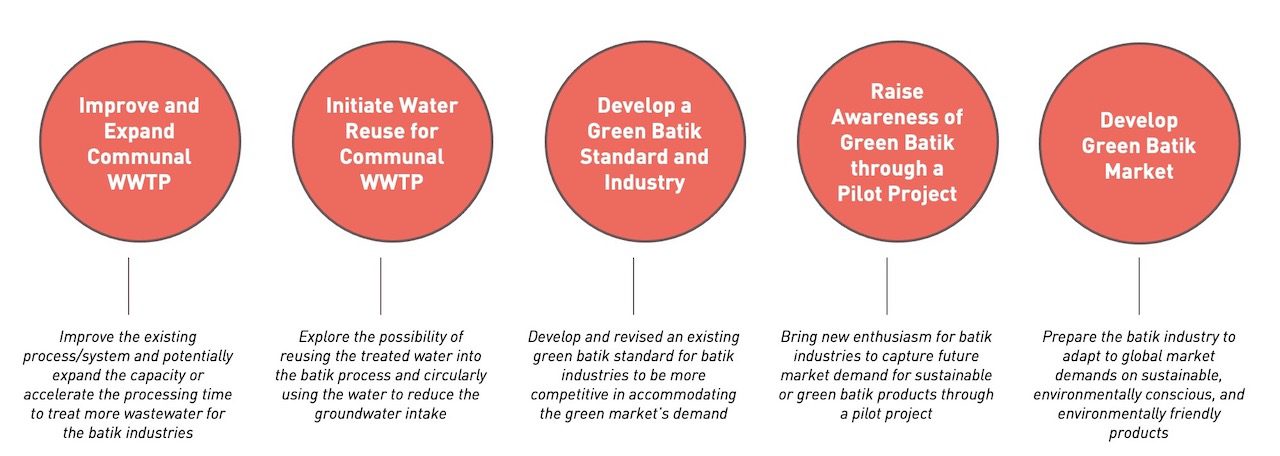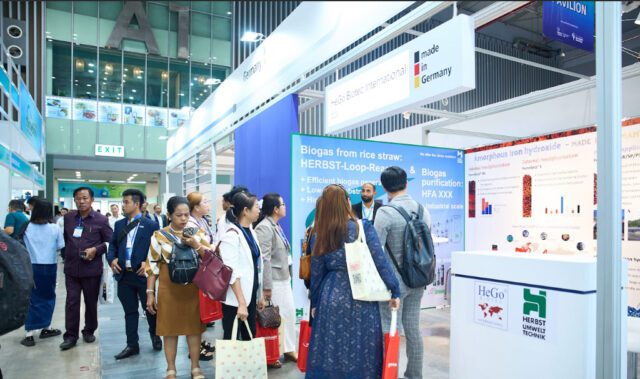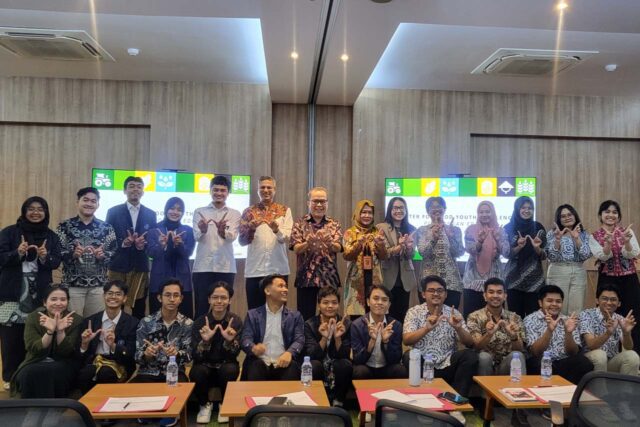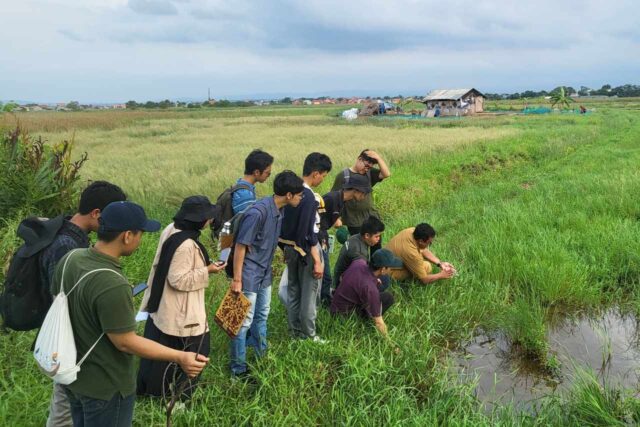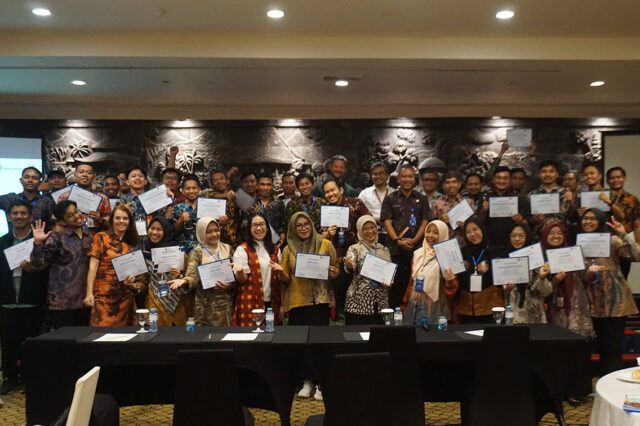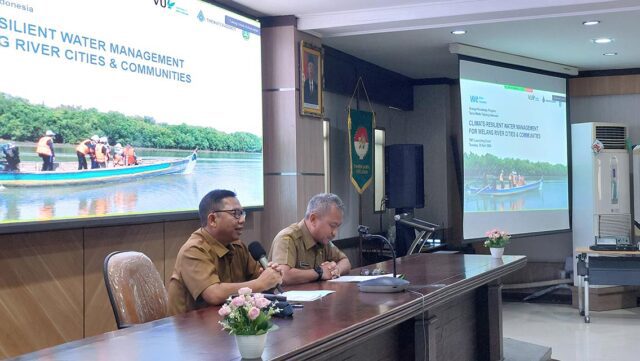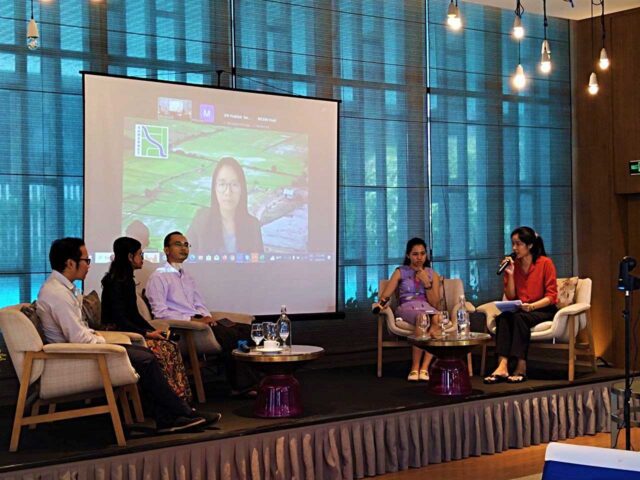The Pekalongan Batik Wastewater project continued into Phase 2 and Phase 3, where Phase 2 focused on identifying and selecting the appropriate solutions needed and supported by the local stakeholders. Matchmaking of the solution providers and the local stakeholders was held as the final phase in November 2022.
Key Activities in Phase 2: Entry Points Identification
Based on insights gathered during the earlier phase, we further analyzed several factors that affect the wastewater issues in Pekalongan and identified five ‘entry points’ that we believe are worthwhile to develop and support. The entry points are (1) Improve and expand communal wastewater treatment plants; (2) Initiate water reuse for communal wastewater treatment plant; (3) Develop green batik standard and industry; (4) Raise awareness on green batik through a pilot project; and (5) Develop green batik market.
Key Activities in Phase 3
a. Matchmaking Workshop: Green Batik Forum
Green Batik Forum in Museum Batik Pekalongan
One of the matchmaking activities on the Pekalongan Batik Wastewater Project was the Green Batik Forum, which we organized jointly with Bappeda Kota Pekalongan on 14 November 2022 at the Batik Museum in Kota Pekalongan. This forum was set as a starting point to kick off the green batik concept in Pekalongan. During this Forum, more than sixty people from different organizations attended.
The first session of the Forum acted as an information and inspiration session for the participants, while the second session was an active brainstorming session on sustainability options. This forum also served as a platform for Dutch water experts to share insights on wastewater treatment technologies while local batik entrepreneurs presented their experiences with more sustainable production methods. The forum not only sparked enthusiasm for sustainable practices but also provided the foundation for stronger collaboration among stakeholders.
b. Wastewater Treatment Technical Assessment
During three days, from 15 to 17 November, we organized a technical assessment of the existing communal wastewater treatment plants across the city, supported by experts from the Dutch Water Boards (Water Board Noorderkwartier and Water Board Zuiderzeeland). The assessment aimed to identify the opportunities for the communal wastewater treatment plants to be improved while also identifying how these plants can support the batik communities in reducing their water footprint.
Project Results
As we established through many discussions with government agencies, batik industries, and other relevant parties, we identified that the interests, ambitions, and requirements of the main stakeholders in Pekalongan are quite far apart.
At the core, water-related challenges in Pekalongan’s batik industry are rooted in a broad variety of factors such as (1) a mix of socio-economic vulnerabilities among small producers, (2) limited policy enforcement, (3) a need for cohesive identity as a ‘batik capital,’ and (4) gaps in public-private collaboration, sustainable production standards, awareness of ‘green batik,’ innovation in sustainable practices, and coordinated efforts across government agencies.
However, through collaboration with local government agencies, batik communities, and Dutch experts, we identified and designed a number of ‘entry points’ to address the specific challenges faced by the industry and provide a framework for moving toward sustainable practices.
Entry Points for Pekalongan Green Batik
As we conclude, we see that to successfully engage stakeholders with wastewater and create an opportunity for new treatment solutions to be introduced and implemented, one has to address it as part of a more integrated approach that recognizes the factors mentioned. Above all, the approach should deliver a concrete and tangible up-side for the batik producers (i.e., the potential to earn more income) to inspire meaningful change. With this vision in mind, we believe a Green Batik Pilot Project stands as a promising first step, providing a pathway to sustainable practices while empowering producers to see real value in embracing greener solutions.

